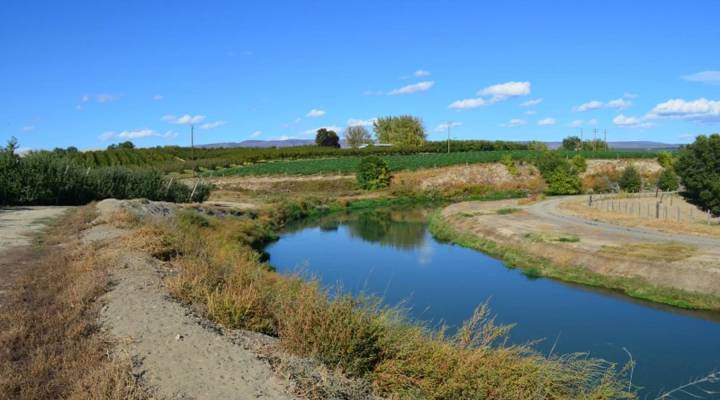
Washington state mulls plan to keep water flowing to high-value crops
Washington state mulls plan to keep water flowing to high-value crops

Brad Carpenter grows apples, cherries, grapes and hops — four of Washington state’s most important crops. Statewide, those crops add about $3 billion to Washington’s economy. Come summer, Carpenter will need a lot of water to keep his orchards and hop yards alive.
“They’re all perennial crops,” Carpenter said. “And if you don’t get water to them, it not only affects yield from that year, but it affects the health and the viability of that plant for years to come.”
Washington state’s agricultural regions are starting to see less water in the summer, thanks to climate change. So one area, the Yakima Valley, is trying to move the water it has toward the highest-value crops. That will require making it easier for some farmers to sell their water to other farmers.
Farmers in the Yakima Valley lived through an excruciating drought in the summer of 2015, and climate scientists say summer water may be scarcer in the future. When there’s not enough water, farmers like Carpenter lose serious money.

Brad Carpenter grows apples, cherries, grapes and hops in Washington state’s Yakima Valley.
“Without water from the Yakima River Basin, we’re up a creek without a paddle and a boat and water. You may be losing as much as $5,000 an acre,” he said.
Carpenter has junior water rights. When there’s a drought, his irrigation canal sometimes runs dry. Other farmers have senior water rights. They almost always get the water they need. The state is working on a plan to get the farmers with senior water rights to sell their water to farmers like Carpenter.
Joe Cook, an environmental economist at the University of Washington, explained how a water market works:
“Some farmers would go to other farmers and say, ‘Hey, are you willing to let me use your water so I can water my vineyard, or my orchard, or a crop that I really can’t let go dry?’”
In other words, the water’s so valuable that farmers with low-value crops could choose to make money by selling their water instead of planting for a season. Right now, those farmers have little incentive to sell their water to other farmers, in part because there’s a complex legal process involved.
That’s what Washington officials are trying to fix. Legislators are still working to secure final funding for the plan, but once it’s in place, it could serve as a model for how to make sure water flows toward the highest-value agriculture.
There’s a lot happening in the world. Through it all, Marketplace is here for you.
You rely on Marketplace to break down the world’s events and tell you how it affects you in a fact-based, approachable way. We rely on your financial support to keep making that possible.
Your donation today powers the independent journalism that you rely on. For just $5/month, you can help sustain Marketplace so we can keep reporting on the things that matter to you.


















